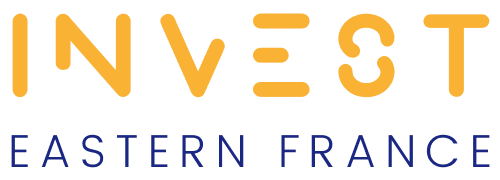
Innoplate, Europe’s first hydrogen fuel cell bipolar plate factory, opens in Eastern France
In 2022, Symbio and Schaeffler signed an agreement for the creation of a joint venture dedicated to the production of bipolar plates of hydrogen fuel cells. In June 2024, after an investment of 100 million euros, the joint venture, called Innoplate, inaugurated its first plant in Haguenau (Alsace – Eastern France).
Innoplate, the result of a cooperation in favour of innovation. . .
“Innoplate is the result of a collaboration between Schaeffler, already a benchmark in the world of bipolar plates, and Symbio, a leader in hydrogen fuel cells, to produce the latest generation of bipolar plates,” says Maria Alcon Hidalgo, Vice President CSR at Symbio.
On the one hand, Schaeffler brings its industrial excellence and OEM expertise to areas such as steel processing and coating technology. The company also contributes its know-how in the design and production of fuel cells.
Symbio is also a leading technology and industrial partner for pioneers of sustainable mobility. Forerunner of zero-emission hydrogen mobility, Symbio combines industrial leadership, disruptive innovation and entrepreneurial agility.
This cooperation places Innoplate as a pioneer of companies to mass-produce bipolar plates in Europe. This accelerates the production of next-generation BPPs for the entire proton exchange membrane fuel cell (PEM) market.
. . . for the rise of hydrogen mobility in Eastern France and Europe
Eastern France (Grand Est Region) aims to offer clean transport and 100% decarbonised energy to industries that would set up in its territory (read more here). This ambition and its geographical position place Eastern France on the European Hydrogen Corridor. The development of the Innoplate plant in Haguenau is part of this ecosystem.
In the heart of Europe and close to the German border, the Innoplate plant is helping to strengthen the European hydrogen industry and its supply chain. It has a key role to play in decarbonising the economy and mobility.
Supported as part of France 2030, production started in March 2024 with an initial production capacity of 4 million bipolar plates per year. The company has set itself the target of reaching 50 million units by 2030.
Sources :
News that might interest you

British start-up Wollette has established its EU headquarters in Strasbourg
Posted on 12 November 2024

MARS plant in Haguenau invests €47 million in expansion
Posted on 16 October 2024

Lonza inaugurates its innovation center in Colmar (Eastern France)
Posted on 30 September 2024

